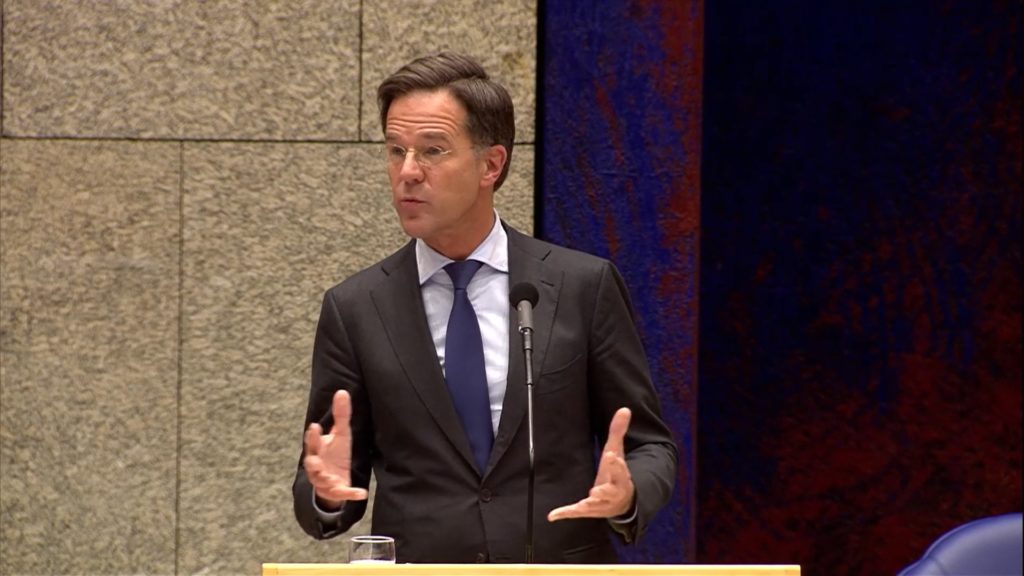Unrest in The Hague: the polder model has had its best days
In the weeks following the elections, it was all hands on deck in The Hague. With Pieter Omzigt, a troublesome member of parliament seemed to be silenced, Mark Rutte’s memory suddenly didn’t work anymore, and then there were the leaked minutes. It does not exactly make the formation a new government easy. Univers discusses the hectic times in The Hague with public administration expert Eva Wolf.

“There was a lot of discussion around that photo with the comment ‘position elsewhere,’ Wolf starts. “I think there would always have been a fuss about it, simply because it involved notes from a confidential conversation. That’s not desirable. But this was magnified so enormously because the note seems to reflect a pattern of someone who more often tries to silence troublesome opponents: Mark Rutte,” says Wolf.
Omtzigt as a symbol
Nevertheless, there were also commentators who thought the fuss was exaggerated. It was not about sidelining Omtzigt, it was about a ministerial post. “With that, they ignore what Omtzigt represents,” Wolf says. “In recent years, he has become a symbol of resistance to the lack of democratic debate in the Rutte government. For many, the memorandum was a drop that caused the bucket to overflow.”
Eventually, the fuss about the memo and what Mark Rutte was able to remember about it culminated in a debate about the role of the House of Representatives in controlling the cabinet. A telling development according to Wolf. “Rutte prefers to settle controversial things in ‘agreements’, with key players outside the House of Representatives. He sees that as efficient policy-making—and it is. You can conduct policy more flexibly because important discussions have already been settled. He prefers to make mutual agreements rather than have a public debate.”
“He’s been doing that for ten years, and moreover, it puts him in a tradition of Dutch administrative culture,” Wolf says. “We have a history of agreeing on things together in small groups, en petit comité. That is a legacy of our compartmentalized democracy and the ‘polder model’ that emerged from it. In fact, we have always been very proud of our polder model. We have made a name for ourselves internationally with it. But this is the other side of it; the model is no longer tenable.”
Regular media
According to Wolf, this has everything to do with a changing zeitgeist due to social and technological developments. “In the 1990s the polder model seemed to work very well. But that was also a period of economic prosperity, and moreover, voters were completely dependent on the mainstream media. Now we are thirty years on, and people want to get more involved in the social debate. That has to do with the rise of social media and with the increase in social antagonism and polarization.”
“The fact that certain decisions are made by a small, initiated group, without broad social discussion, is no longer accepted,” says Wolf, without implying that social discontent is greater now than it was thirty years ago. “I think people mainly have more means to express their discontent—and then you have to think outside the coronavirus context for a moment. We are especially more informed about the discontent of others.”
Backroom Politics
In any case, the polder culture of The Hague seems to have had its day. But turning that around is going to be quite a job, Wolf says. “That’s a very difficult point. Because Mark Rutte has now become the symbol of so-called back-room politics, but that is also our political culture. It takes a lot more to change that than simply saying ‘now we’re going to do things differently.’ Then you really have to start governing and doing politics in a different way.”
And according to Wolf, that starts with the drafting of a coalition agreement. “If you don’t make a watertight coalition agreement in advance, you offer room for more debate and dissent. But that also means much more risks for the government you form because you leave things undecided. Making policy inevitably becomes more difficult because for every new controversial policy proposal, there has to be a new debate. A majority has to be found for that again,” explains the public administration expert.
“That will be quite a challenge, especially given how fragmented the political landscape is. That slows the process down and may also come at the expense of a consistent program. The question is whether we want to take that leap.”
A fourth term for Rutte or not?
Whether an attempt will indeed be made to bring about a cultural shift in The Hague remains to be seen. In addition, it is a matter of conjecture as to which parties should shape such a cultural shift. A few weeks ago, the end of Rutte as Prime Minister seemed imminent and the leaked minutes from the Cabinet’s meeting make a new Cabinet with the VVD leader seem increasingly unlikely. But Wolf does not yet dare to strike Rutte IV off the list.
“It will depend on how long the formation talks last. Because the longer they last, the more that works in Rutte’s favor. As time passes, the political sensitivity of what has happened will diminish. But whether that’s enough for a fourth term for Mark Rutte? I don’t dare burn my fingers on that,” concludes Wolf.






